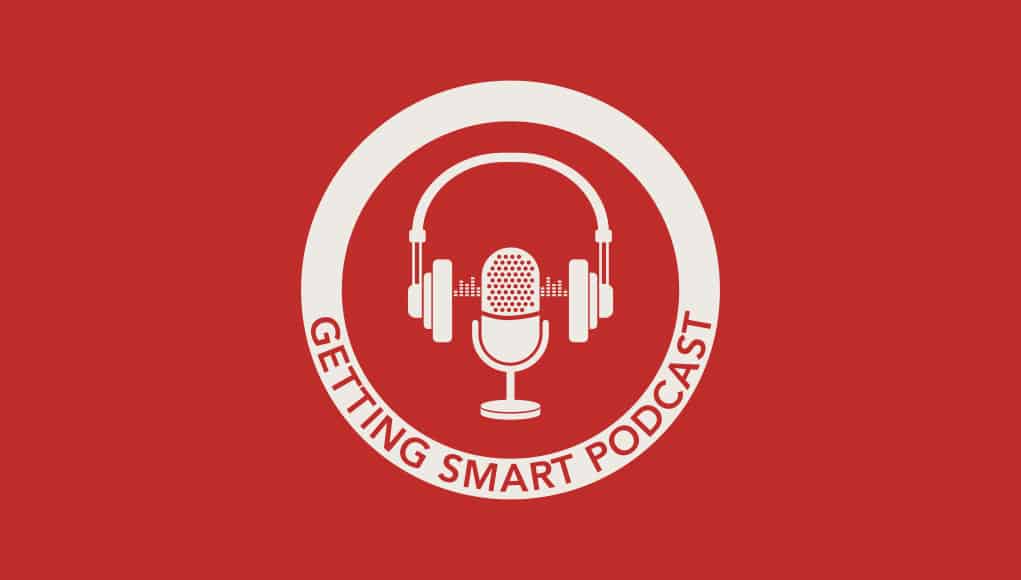Getting Smart Podcast | Leading Personalized Learning: State Policy Advice & Successes

Recently 28 state Education Committee Chairs from 19 states gathered in Portland to consider the future of education and “Innovation in an ESSA Era.”
Convened by the National Conference of State Legislatures, highlights included a preschool software success story and a discussion of blended, personalized and competency-based learning kicked off by an expert panel.
While I was there I had the chance to chat with Utah Preparing Students Today for a Rewarding Tomorrow (UPSTART) champion Senator Howard Stephenson, a long-time advocate of personalized learning. He described other legislative efforts to incentivize adoption of high-quality adaptive learning products for reading intervention, English language acquisition and elementary and secondary math.
Over 350,000 Utah students (more than half) are benefiting from daily personalized learning, in part as a result of Sen. Stephenson’s leadership. Here’s more of our discussion:
Software Success Story
Eight years ago a cash-strapped Utah legislature searched for ways to extend the benefits of early learning to low-income families. Taking advantage of a proven local literacy program from the nonprofit Waterford Institute, the legislature established a home-based EdTech approach to developing the school readiness skills of preschool children. More than 5,000 families were provided with a computer and Waterford’s adaptive literacy software as part of UPSTART.
An April release from the Utah State Office of Education shared the extraordinary results of Cohort 6. UPSTART students dramatically outperformed state averages in DIBELS and the state test in grades one through four.

As shown by the chart above, results were most dramatic among minority, low income, and special needs students. Perhaps most remarkable is that the impact of the adaptive preschool software remained strong in 4th grade across all subjects four years later.

The Utah Office of Education concluded:
The UPSTART program shows continued success at helping preschool-age children develop literacy skills and prepare for school. These outcomes would have specific benefits to at-risk children, whose families struggle with poverty and other issues, and often lack the resources to help their children develop the literacy skills needed to succeed in school. The strong program effects support wide-scale implementation across at-risk preschool populations.
Future of Education
Katherine Prince of KnowledgeWorks and I led a discussion on the future of education. We began by celebrating progress made in the last few years:
- Connectivity: high levels of broadband and device access in most schools
- Broader aims: recognition of the importance of mindsets and success skills
- New learning models: A growing number of schools have adopted blended, personalized, competency-based learning models.
As we observe in our Smart Cities investigation, inventing the future is tough work–it benefits from funding incentives (like the Utah example above), expert advice and learning networks.

We discussed three trends influencing education:
- #ProjectBased: We live in a project based world: 40% of grads will freelance and another 40% will join companies and manage their work in projects. We need to prepare young people for novelty and managing small chunks of change to defined deliverables and public products.
- Platforms: We live in a platform economy: five of the seven largest companies run platforms. They’ve taught us about network effects, like scalability—they’re using machine learning tools to get smarter and it’s changing the employment landscape fast. The same tools that are changing the future of work and reshaping economic approaches could be used to manage or reshape educational institutions. These tools are combining with a cultural shift toward distributed authority and greater transparency to create new approaches to learning and coordination.
- Competence: We live in a show what you know world. Demonstrated competencies and verifiable credentials and gaining importance.
We looked into the near future
- Readiness redefined: We are going to need to redefine the role of people in the workplace as artificial intelligence and machine learning displace or change many middle-class jobs. The choices we make about our smart machine partnerships at work will help define the purpose of whole person education—360 degree learners.
- New jobs: People increasingly expect to engage in authentic and relevant experiences that align with their personal value sets and at the same time are going to be trying to find the right niche in a complex economic landscape comprised of multiple interlocking economies.
- Personalization: We have increasing opportunity to optimize learning environments for individuals and to develop ourselves to the fullest potential. Could that lead to a greater focus on individual development in education? How can communities support personalized learning?
- Supports: Individuals and communities are going to need to develop resilience to respond to rapid change and find new solutions amid uncertain landscapes. How might education support people in developing as innovators and problem solvers who can respond to volatile conditions in positive ways?
Policy Advice
Dale Frost from iNACOL discussed Promising State Policies for Personalized Learning, a valuable resource for policymakers considering strategies for advanced personalized learning models.

Tom Arnett of the Christensen Institute, discussed blended learning models and the theory of disruptive innovation.
Karla Phillips of ExcelinEd, discussed national progress in competency-based education (below) including legislative options and communication advice.

Legislators discussed findings of the NCSL International Education Study Group, particularly the commitment to teacher development.
For more, see:
- Preparing Students for Project-Based World
- Batch of One: How AI & Robots Will Bring Manufacturing Home to the U.S.
- Learning for Life: New Skills for New Jobs
Stay in-the-know with all things EdTech and innovations in learning by signing up to receive the weekly Smart Update.







0 Comments
Leave a Comment
Your email address will not be published. All fields are required.